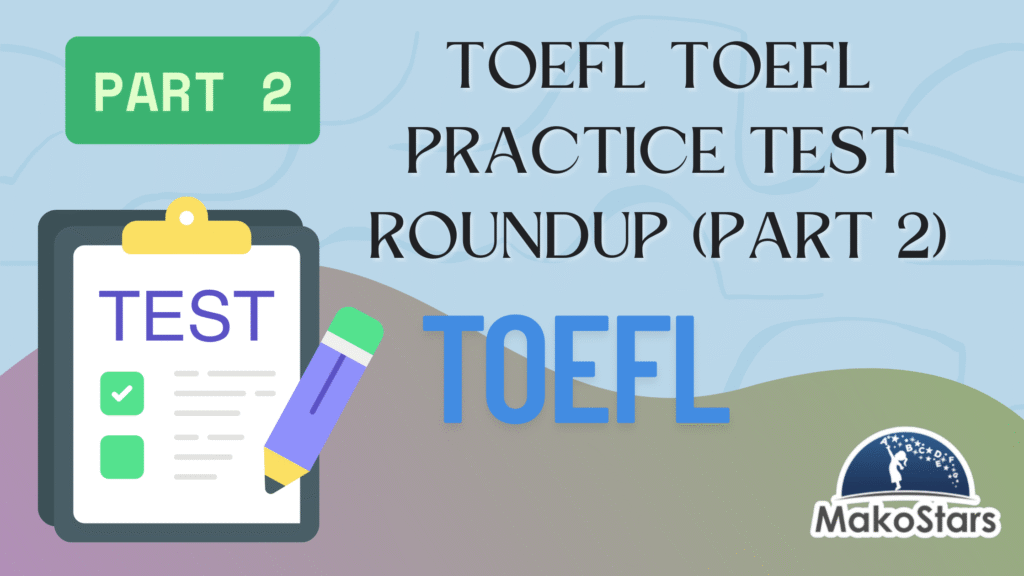English and Social Media: Effective Strategies for Language Learning
Table of Contents
Introduction
Social media has become an integral part of our daily lives. You might be surprised to learn that these platforms aren’t just for sharing memes and catching up with friends. They’re also powerful tools to boost your English skills. English social media influence and language learning go hand in hand, offering you unique opportunities to practice language in real-world contexts.
We’ll explore effective strategies on how to enhance English skills and make the most of these digital spaces. You’ll learn about the benefits of leveraging English social media influence for language practice and how to overcome common challenges faced by English language learners.
We’ll also share best practices to help you navigate the world of social media while enhancing your English language proficiency.
English and Social Media Platforms for Language Learning
Social media platforms have become powerful tools to boost your English skills. These digital spaces offer unique opportunities to practice language in real-world contexts. Let’s explore some popular platforms and how they can help you improve your English.
Facebook is a great place to start your language learning journey. You can follow English-language pages and groups related to your interests, exposing you to various vocabulary and sentence structures. Set your language preferences to English to immerse yourself in an English environment. Engage with posts, articles, and videos by reading, watching, and commenting in English. This practice sharpens your reading skills and encourages you to think and communicate in English.
Twitter is a microblogging platform that allows users to communicate through short messages. It’s an excellent tool for language learners due to its quick, conversational nature. The brevity of tweets (limited to 280 characters) means that the writing has a distinct style, helping you focus on concise communication. You can follow language learning influencers, participate in language challenges, and engage with native speakers to understand nuances and natural conversation patterns.
Instagram, a visual platform, offers creative ways to improve your English skills. Follow English-speaking accounts related to your interests and explore language learning hashtags like #EnglishLearning or #LearnEnglish. Read captions thoroughly, paying attention to sentence structures and new words. Listen to audio clips and videos to improve your listening comprehension. Engage with content by leaving thoughtful comments in English, providing an opportunity for interaction and feedback.
YouTube
YouTube is a treasure trove for English learners, providing ways to enhance English skills. You can find channels that offer grammar lessons, pronunciation tips, language games, and authentic conversations. Watching videos in English exposes you to natural speech patterns and contextual usage, helping you adapt to real-life conversations. Many channels, like BBC Learning English, publish daily lessons designed to help you learn English effectively using various formats.

Benefits of Using Social Media for English Practice
Social media platforms offer numerous advantages for English language learners. These digital spaces provide unique opportunities to enhance your language skills in real-world contexts. Let’s explore some key benefits of using social media for English practice.
Increased exposure to authentic language
When you use social media for language learning, you get to see English as it’s naturally used by native speakers. This exposure includes slang, idioms, and expressions that you might not find in textbooks. By following English-language accounts related to your interests, you can immerse yourself in a variety of topics. This not only helps you expand your vocabulary but also allows you to experience different speaking styles and accents.
Opportunities for real-world communication
Social media platforms like Facebook, Twitter, and Instagram allow you to interact with native speakers and other learners in real time. This interaction is crucial to practice your conversational skills and understand cultural nuances. You can engage in discussions by commenting on posts, sending messages, or even participating in voice or video calls. These real-world applications of language skills help bridge the gap between what you learn in theory and how you use it in practice.
Access to diverse learning resources
One of the greatest advantages of using social media for language learning is the abundance of diverse content available. You can find a wealth of learning materials shared by educators, language enthusiasts, and fellow learners. These resources include language learning videos, podcasts, articles, and interactive quizzes that cater to different learning styles and proficiency levels.

Effective Strategies for Language Learning on Social Media
Social media platforms offer innovative ways to enhance your English skills. By using these digital spaces strategically, you can transform your scrolling time into valuable learning opportunities. Here are some effective strategies to boost your language proficiency using social media:
Join language exchange groups
Facebook and LinkedIn host numerous groups dedicated to English learning. These groups provide a platform to interact with fellow learners and native speakers. By participating in discussions and reading posts in these groups, you can significantly improve your comprehension and analytical skills. You can also find language exchange partners who are interested in learning your native language while helping you with English.
Follow English-language accounts
Platforms like Twitter and Instagram are full of English language influencers, educators, and native speakers. By following these accounts, you’ll regularly encounter new vocabulary, idioms, and grammatical structures. For instance, the BBC Learning English Twitter account shares useful resources, YouTube clips, quizzes, and pronunciation tips. Engage with their content by liking, commenting, and asking questions. This interaction will reinforce your learning and improve your writing and conversational skills.
Create content in English
Start writing your own posts in English about your day, opinions on topics, or anything that interests you. This practice improves writing skills and boosts confidence in using the language. You can create Instagram posts or stories in English, which not only helps you practice writing but also connects you with a supportive community. Share English news articles, podcasts, or other interesting content with your language partners or groups. Discuss the content, share your opinions, and ask questions to enhance your reading and comprehension skills.

Leveraging Social Media to Improve English Skills
Social media platforms offer unique opportunities to enhance your English skills. By using these digital spaces strategically, you can transform your scrolling time into valuable learning experiences. Let’s explore how you can leverage social media to improve different aspects of your English proficiency.
Listening practice
Video-sharing platforms are treasure troves of educational content for English learners. You can find channels that offer grammar lessons, pronunciation tips, and authentic conversations.
Watching these videos exposes you to natural speech patterns and contextual usage, helping you adapt to real-life conversations. TikTok creators often share brief, engaging videos focusing on pronunciation, idiomatic expressions, and conversational English. This exposure to diverse accents and dialects can significantly improve your listening comprehension.
Speaking Practice
Engaging in conversations through comments, messages, and even voice or video calls on social media platforms can boost your speaking skills. By actively participating in discussions, you practice forming sentences, expressing ideas, and comprehending responses. This real-world application of language skills helps bridge the gap between theoretical knowledge and practical usage.
Reading Practice
Platforms like Twitter, LinkedIn, and Facebook are great for reading short and long-form content in English. Following English news pages and reading their articles is an excellent way to keep up with current events while enhancing your language skills. It exposes you to formal language and journalistic styles. Many writers and bloggers use social media to publish their work, exposing you to diverse writing styles and advanced vocabulary.
Writing Practice
Social media provides ample opportunities to practice writing in English. Start writing your own posts about your day, opinions on topics, or anything that interests you. This practice improves writing skills and boosts confidence in using the language. Engaging in conversations on social media posts is a great way to practice informal writing and express opinions in English. You can also create your own blog, which research suggests helps schoolchildren practice writing more effectively.

Overcoming Language Learning Challenges with Social Media
Social media platforms offer unique opportunities to tackle common hurdles faced by English language learners. By leveraging these digital spaces strategically, you can address various challenges and enhance your language skills effectively.
Building confidence
One of the biggest obstacles in language learning is lack of confidence. Social media provides a supportive environment to practice English without the pressure of face-to-face interactions. You can start by writing short posts or comments in English about topics that interest you. This practice improves your writing skills and boosts your confidence in using the language. Engaging in online discussions on platforms like Reddit or Twitter allows you to express your opinions in English, challenging you to articulate your thoughts clearly.
Reducing anxiety
Many learners experience anxiety when speaking English, especially in real-time situations. Social media can help reduce this anxiety by providing a less intimidating space to practice. You can join English-language learning groups on Facebook or LinkedIn, where you can interact with fellow learners and native speakers in a supportive environment. These groups offer a platform to ask questions, share experiences, and receive encouragement from others who understand your challenges.
Remember, consistent practice and engagement are key to improving your language proficiency.

Best Practices for Language Learners on Social Medi
Social media platforms offer innovative ways to enhance your English skills. By using these digital spaces strategically, you can transform your scrolling time into valuable learning opportunities. Here are some best practices to boost your language proficiency using social media:
Set clear learning goals
Define what you want to achieve with your social media usage. Are you looking to improve vocabulary, enhance your listening skills, or practice speaking? Having clear goals will help you stay focused and measure your progress.
For example, you might aim to learn 50 new words in one week or reach a conversational level in three months. Consider using the OKR (Objectives and Key Results) system, a proven framework used by companies like Google and Amazon.
Create a Study Schedule
Allocate specific times for studying on social media. Consistency is key in language learning, so try to stick to a regular schedule. This will help you develop a routine and make steady progress. Aim for 30 minutes to an hour of daily practice to make quick progress. Use spaced repetition to ensure you retain new vocabulary, phrases, and grammar points.
Engage Actively
Don’t be a passive observer on social media. Participate in discussions by joining language learning groups and channels. Engage with content by liking, commenting, and asking questions. This interaction will reinforce your learning and improve your writing and conversational skills. Remember, everyone learns together, and the person who is correcting your mistake once made a similar mistake.
Track Progress
Regularly review what you have learned and reflect on your progress. Keep a journal to track new vocabulary, grammar rules, and phrases you have picked up. After every month, check in with yourself. Ask questions like: Did I reach my goals this month? What did I understand the best? What did I understand the least? Should I switch up my activities next week? These questions will help you plan your next goals, avoid the language learning plateau, and track your progress – a huge motivator!
Conclusion
Social media platforms have undoubtedly caused a revolution in the way we approach language learning. By using these digital spaces strategically, you can turn your scrolling time into valuable opportunities to improve your English skills. From joining language exchange groups to creating content in English, these platforms offer a wealth of resources to enhance your listening, speaking, reading, and writing abilities. The key lies in setting clear goals, staying consistent, and actively engaging with the content and communities you find.




![12 Basic Grammar Rules to Write Like a Pro [2025 Guide]](https://englishlearninghub.online/wp-content/uploads/2025/07/12-Basic-Grammar-Rules-to-Write-Like-a-Pro-2025-Guide-1024x576.png)

